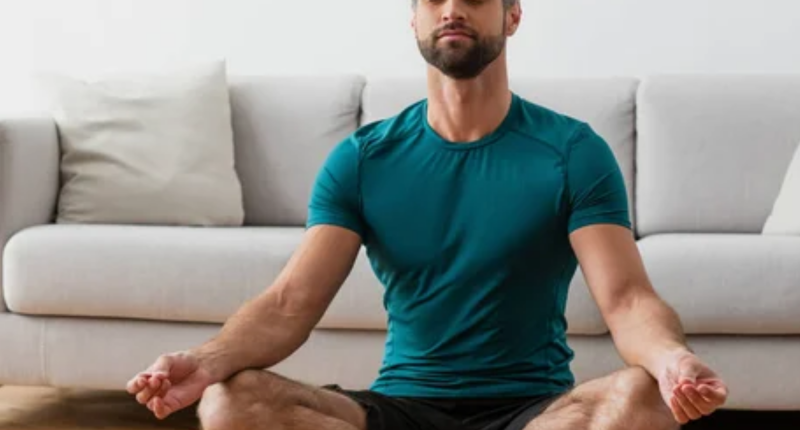Can yoga practices improve your prostate health? A compelling perspective suggests yoga might benefit men’s prostatic well-being, particularly in mitigating BPH-related lower urinary tract symptoms (LUTS).
Yoga, a holistic practice encompassing mental and physical disciplines, tackles diverse health concerns. It effectively manages chronic backaches, asthma, and improves lung function in various populations. Yoga also addresses mental health conditions like schizophrenia, epilepsy, and depression. It strengthens pelvic muscles and boosts quality of life after radical prostatectomy. Notably, yoga shows promise in improving prostate cancer (PCa), chronic pelvic discomfort, and chronic prostatitis symptoms.
However, its impact on BPH and LUTS remains less explored.
Study
Yoga has been found to be effective in improving prostate health, particularly in managing symptoms of benign prostatic hyperplasia (BPH) and chronic prostatitis
Some benefits of yoga for prostate health include:
- Strengthening pelvic muscles: Yoga postures and Kegel exercises can help strengthen the pelvic floor muscles, improving bladder and bowel control, and increasing sexual satisfaction
- Reducing stress: can help prevent BPH symptoms from being aggravated
- Exercising and strengthening the muscles in the pelvic floor, which can help improve bladder control and reduce pelvic tension
- Opening the chest and increasing energy and blood flow to the pelvic region, supporting a healthy prostate.
Some yoga poses that are beneficial for prostate health include:
- Cobbler Pose (Baddha Konasana): This seated position helps release pelvic tension.
- Kundalini Yoga: This practice focuses on moving energy up the spine and increasing physical vitality.
While yoga can be a helpful tool for managing prostate health, it is essential to consult with a healthcare professional before starting any new exercise regimen, especially if you have a history of prostate issues or are currently undergoing treatment.
How often should you practice yoga to improve prostate health
To improve prostate health through yoga, it is recommended to practice yoga regularly. The frequency of practice may vary depending on your personal goals and preferences. Here are some suggestions:
Daily practice: Engaging in yoga exercises on a daily basis can help strengthen the pelvic floor muscles, improve bladder and bowel control, and increase sexual satisfaction.
Weekly classes: Participating in weekly yoga classes, such as Kundalini Yoga, can help bring up the energy stored at the base of your spine and increase physical vitality.
Twice a week during treatment: Men undergoing prostate cancer radiation treatment have reported less fatigue, fewer sexual side effects, and better urinary functioning when practicing yoga twice a week.
Organized yoga program: An organized yoga program of two sessions per week during the radiotherapy (RT) cycle has been shown to significantly reduce fatigue and improve sexual and urinary symptoms in men with prostate cancer.
Remember to consult with a healthcare professional before starting any new exercise regimen, especially if you have a history of prostate issues or are currently undergoing treatment.
Conclusion
This perspective underscores the potential of yoga for supporting men’s prostate health, particularly in alleviating BPH-related LUTS, through various mechanisms.
More research is crucial to definitively establish the benefits of yoga for BPH and LUTS, assess the effectiveness of different routines, and determine potential risks and patient satisfaction.vUnderstanding the impact of yoga on anxiety in active cases is another important area for future investigation.
ALSO READ: 5 reasons frequent intimacy with partner may not save you from prostate cancer










